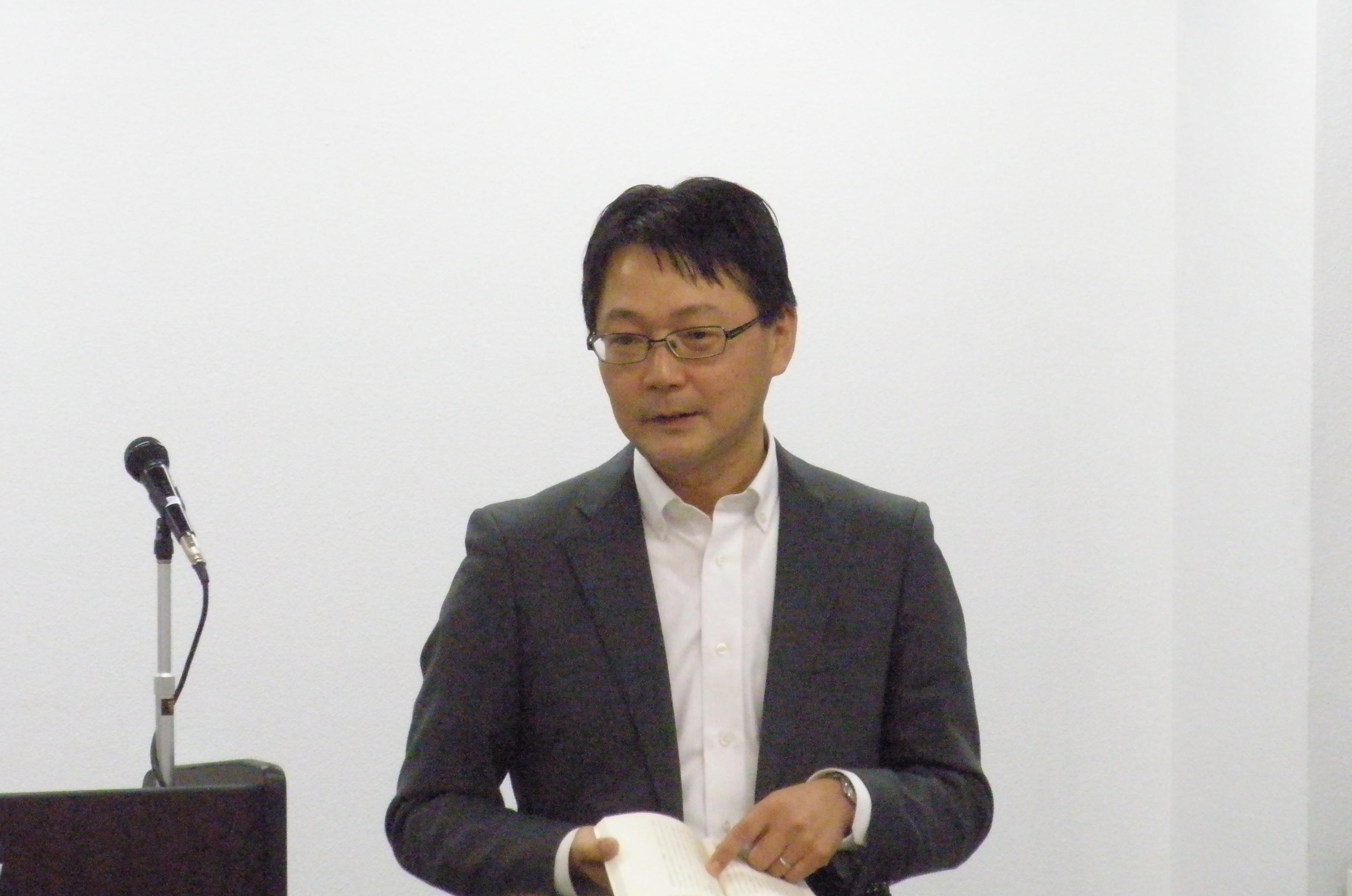Research HighlightsQuestioning Media as a Historical A PrioriProf. Kentaro KawashimaDepartment of German LiteratureApr. 1, 2020

Media prescribes our memory, thinking, judgment, artistic expression, and communication as “historical a priori.” My research questions how such media defines culture. At the basis of media theory is the point of view that a priori cognition is transcendental as well as historical for people.
My research started with reading German thinker Walter Benjamin, who is known for works such as The Work of Art in the Age of Mechanical Reproduction. The first thing I noticed was that he began writing his autobiography almost immediately after writing a paper called A Short History of Photography. Benjamin's autobiography, Berlin Childhood around 1900, was written shortly after a theoretical consideration of photography, the memory medium invented in the 19th century. His autobiography exhibits a keen awareness of photography's influence over recalling the past. In this respect, it is different from Rousseau's Confessions and Goethe's Poetry and Truth, which are both autobiographies written before the invention of photography. So what is the difference between an autobiography in the age of photography—a storage medium all too commonplace for us now—and an autobiography before the photograph? To answer this question, I interpreted the autobiographies of five 20th-century writers in relation to photography for my doctoral dissertation.
This kind of research relies on media theory, which has flourished in Germany since the 1980s. Media here refers to not just mass media like newspapers and television, but a variety of technologies that mediate things like memory, thinking, communication, and artistic expression. In other words, it is a technical condition that enables various forms of communication. If so, then to think about what is being communicated in various arts and media, we must understand the nature of the medium being used to convey them. Each medium has distinct characteristics, and these characteristics affect what kinds of messages can be conveyed—the medium is the message.
It is hardly a coincidence that such media theory developed in Germany. Germany’s tradition of philosophical idealism served as a theoretical basis for the development of media theory. The philosopher Kant claimed that time and space were the types of a priori for human beings to sense the world. While Kant interprets time and space abstractly and assumes that they are eternally constant, media theory posits that time and space transform together with the development of media technologies. We try to capture their transformation and grasp media as a "historical a priori" that prescribes perception and communication.
Neither is it a coincidence that German media theory was first pioneered by researchers such as Friedrich Kittler and Manfred Schneider, both of whom studied at the University of Freiburg. The philosophy of former Freiburg president Martin Heidegger, in particular his philosophy of technology, has had a significant impact on German media theory. Modern technology, according to Heidegger, is no longer a tool for humanity to rule nature, but rather something that defines the existence of humanity. When Kittler argues that the history of media is none other than the history of human existence, he is inheriting Heidegger’s views on technology, who claims that humanity is regulated by technology.
As a literary researcher, I study media theory and apply it to the interpretation of literary works. Moreover, I try to produce a genealogy of media theory within the history of German thought. German media theory has seen a range of developments since the time of Kittler though it has been met with little acceptance in Japan. I am working to follow those developments and incorporate them into my research. Among them, media theory concerning the relationship between literature and law has gained particular viability in recent years. Benjamin serves as an essential reference here as well, having distinguished law from justice in his interpretation of Greek tragedy in The Origin of German Tragic Drama.


